Is it a little late to be talking about my favorite books of 2024? Nah. I don’t pick my best/worst of the year in the middle of December, because what if I find a new favorite on December 31? Sadly, this time around the book I finished at the tail end of the year was only ‘fine’. Another year, perhaps. This list is divided into fiction and nonfiction, with my five favorites in each category in no particular order. They’re not all 2024 releases, they’re just my favorite books I read for the first time last year. Nonfiction:
This is an account of Nan Shepherd’s life in the Cairngorms, a small mountain range in Scotland where the weather can turn from idyllic to horrendous in a matter of moments, and where that landscape– at least during Shepherd’s life– was relatively untouched. Shepherd’s writing is spare but elegant and provides a vivid portrait of the land she loved.
In this marvelous book, Young takes a look at animal perception and provides a window into the complex, surprising, and extraordinary way that animals perceive and interact with the world, from a dog’s ultra-sensitive sense of smell to the way different animals perceive time. And while we often assume that human senses aren’t as good as other animals, Yong assures us that we, too, are remarkable beings with amazing senses.
In what is probably the definitive biography of Anne Boleyn, Ives provides us with a thorough and often surprising look at the life of Henry VIII’s oft-maligned second wife. Anne has been accused of being a home-wrecker, a witch, and a selfish woman only interested in furthering her own power. But the real story of Anne shows a cosmopolitan and highly-educated woman who was devoted to her faith and, when the king’s eye turned to her, was determined that she would not be set aside and forgotten like her sister was.
Days after the video of George Floyd’s murder by the police went viral in 2020, Christian Cooper was birdwatching in Central Park when, after a mundane encounter regarding her unleashed dog, a white woman called the police and accused Cooper of threatening her. Cooper had recorded the incident on his phone, and shared it online, where it promptly went viral. While this encounter changed the woman’s life forever (in addition to seeing her charged with filing a false police report), Cooper tried not to let it affect him. The incident is hardly mentioned until the end of Cooper’s wonderful memoir, in which he shares many details of a fascinating life that includes his troubled relationship with his father, his work in comics, his many travels, growing up as a gay Black man in the 1970s and 80s, along with his lifelong love of birds. Once I started reading this book, I couldn’t put it down until I’d finished, and though I read it last spring, I’m still thinking about it.
I fully admit that I haven’t listened to much of the music Abdurraqib talks about in this thoughtful collection of essays, but with each new artist or album he talked about, I wanted nothing more than to go and listen to them immediately after finishing each essay. As a Black Muslim teenager in America, he found refuge in music, but in the wake of political change and the terrorist attacks in Paris, he worries that young people like him won’t be able to have such a refuge. Abdurraqib’s writing is beautiful and heartfelt from beginning to end, and he always finds a way to make you care about subjects you’ve never thought about before. Fiction:
After being discharged from the Canadian Army after a debilitating injury during World War I, and after losing her parents in the Halifax explosion, Army nurse Laura Iven can barely process her grief. Then she receives a message that her younger brother Freddie has been killed on the western front. But something about the message doesn’t add up for Laura, so she decides to return to France to find Freddie. Her new friend Pim accompanies her to find out what happened to her son. Meanwhile, in France, Freddie survived the attack he was thought to be lost in, but is trapped with a German soldier. Together, the two must find a way to escape their circumstances– and free themselves from a mysterious figure who offers safety and shelter, but at an unimaginable price. This book took Arden five years to write, but the wait was worth it. This is a story about the many kinds of human love, connection, and the sacrifices we will make for the sake of those we love. I read this book twice last year, and will happily do so again.
In the plague year of 1666, an English village is struck by the plague. To try to protect the communities around them, the villagers shut themselves off from the rest of the world. As friends and family die around her, young Anna Frith becomes a healer, counselor, and bedrock for her community, finding more strength within herself than she ever thought possible. I’d read one of Brooks’s books before, but I hadn’t given Year of Wonders any thought until a friend suggested I read it. Within a few pages, I was hooked and didn’t want to stop until I found out what happened next.
I’m not usually a fan of short stories, because as soon as I’ve gotten used to a world and start to connect to the characters, the story is over. But after Angela Carter’s work kept popping up in my day to day life, I decided to give her collection of reworked fairy tales a try. I’m so glad I ded, because while fairytale retellings are an evergreen part of publishing, no one tackles their inherit darkness quite like Carter does. With her deliberately overwrought prose, Carter delves into old tales like Bluebeard or Sleeping Beauty and provides a feminist, timeless take on them. This was the perfect book to read in October, and that may just become a yearly tradition for me.
Though the bustling city-state of Navola has a council that reigns over it, it is truly run by the di Regulai, a fabulously wealthy family with its fingers in every industry and ambitions to spread its influence far beyond Navola’s borders. Davico is the family’s sole heir, and as he grows up in the city’s treacherous political atmosphere, he discovers that he cannot truly trust anyone around him. Anyone could betray him at any time, and the sole key to his survival may be the mysterious dragon’s eye, a relic of ancient days that sits on his father’s desk. This book was filled to the brim with twisty politics and incredible detail that made Navola and its surroundings come to life for me. Though it was slow-paced and dense, I didn’t want the story to end. I don’t know if a sequel will ever come out, but if it does, I will be the first in line to pick it up.
Dinios Kol is just trying to get through the day. He’s an Engraver– magically altered to have a perfect memory– which makes him a useful assistant to Ana Dolabra, a brilliant investigator who refuses to leave her house. When a man is murdered in an extraordinary fashion, Ana and Dinios are called in to find out what happened. What they discover could shake their society to the core. And did I mention the giant sea monsters bent on annihilating society? This twisty magical mystery hooked me from page one thanks to the wonderful characters and the Sherlock Holmes-esque plot. The fantasy world is a fascinating one, too, and Bennett didn’t overdo the explanations of the magic system, which I greatly appreciate. The next book in this series comes out later this year, and I can’t wait to read it. The Worst:
This fictionalized story of the rise and fall of Anne Boleyn as told by her sister Mary is sold as a sensational account of sex, love, hate, and sisterhood. But it’s just three siblings having variations on the same conversation for 250 pages, and then having variations on another conversation for the next 250 pages. Anne treats Mary terribly for the entire book, but somehow I’m supposed to believe that, when Anne falls from grace in 1536, Mary will risk her life to try to save her sister? Sorry, I don’t believe it. All I’d ever heard about this book was how dramatic it was, but I found it to be intolerably boring.
Billed as a retelling of Bram Stoker’s Dracula, in which Lucy Westenra survives the book’s events and must learn to deal with her existence as an immortal vampire, I found this story to be utterly nonsensical. We’re given a modern main character who is about as smart as a box of cornflakes, Iris, who is trying to destroy her evil mother’s evil business by– running away. She goes to a crumbling manor in London (which her family owns and has ignored) to pilfer and sell what’s left there, and though she is apparently paranoid about everyone around here, she lets three strangers waltz into her life– because they’re pretty, I guess. And you’ll never guess who one of these strangers is! Meanwhile, we get Lucy’s account of her vampiric existence, which includes finding a super secret society of women vampires, and ends a world war all by herself by sternly telling a room full of generals to stop fighting because she said so. We’re also treated to character assassinations of every figure from Dracula, as well as a plot resolution that boils down to, “late-stage capitalism was the real villain all along”. Do yourself a favor and watch an episode of Scooby-Doo instead of reading this.
While the title of this book is Lady Macbeth, this story bears little resemblance to either the Shakespearean play Reid says she adores or the historical tale of King Macbeth and his queen, Gruoch. Instead of an ambitious, middle-aged woman, we get a shivering French teenager, Roscille, sent to the horrible, barren land of Scotland to marry the evil and violent Macbeth. Roscille is just so beautiful, and if she looks into men’s eyes she can command them to do anything, which is why she has to wear a veil at all times. Shakespeare’s Lady Macbeth is a vibrant woman with agency, who talks her warrior husband into killing a king to further their shared ambitions. Roscille shivers in a corner. Then gets her arm stuck in her gown. Then shivers in a corner some more. Then she gets into trouble and has to be rescued by a man. And there are no other women around her because the Scots don’t allow women in their castles for some reason. This book was billed as a ‘feminist’ take on Lady Macbeth, but it’s weirdly misogynistic (every other woman who makes an appearance is described as ugly or stupid), xenophobic (the Scottish characters are never referred to as anything but ugly or violent), and features the so-called heroine just winning at patriarchy. Between all this and the blatant historical inaccuracies (Reid claims that the “mists of time” make it difficult to research this period, though Val McDermid, Isabelle Schuler, and Susan Fraser King didn’t have much trouble researching it when they wrote their takes on Lady Macbeth), Lady Macbeth still makes me mad and easily takes the “top” spot as Worst Book I Read in 2024. Traveling in Books is free today. But if you enjoyed this post, you can tell Traveling in Books that their writing is valuable by pledging a future subscription. You won't be charged unless they enable payments. |
Sunday, 12 January 2025
My Best (and Worst) Books of 2024
Subscribe to:
Post Comments (Atom)
The View From Bed
This is my usual after work view, cropped to take out the laundry baskets and ironing board and general cluttered mess of the room. ͏ ͏...
-
https://advanceinstitute.com.au/2024/04/24/sunnycare-aged-care-week-10/?page_id=...
-
barbaraturneywielandpoetess posted: " life on a rooftop can be short ; depends whether one looks down or up . ...
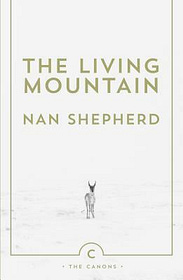
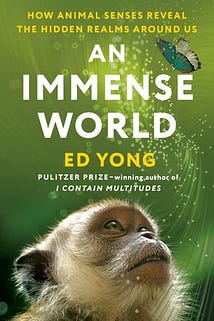
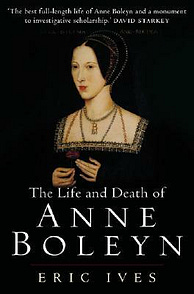
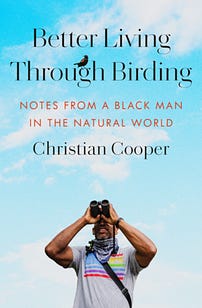
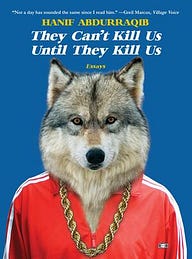
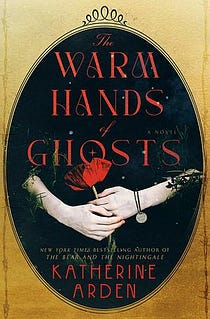
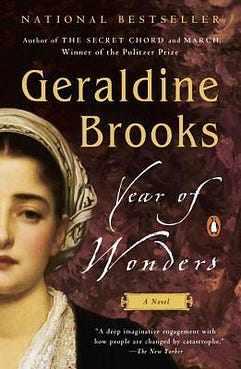
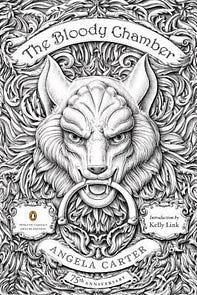
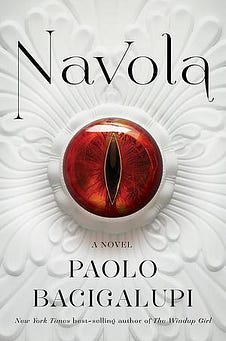
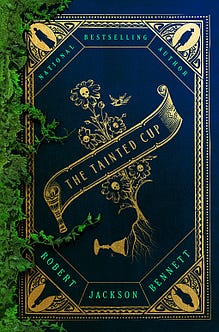
No comments:
Post a Comment